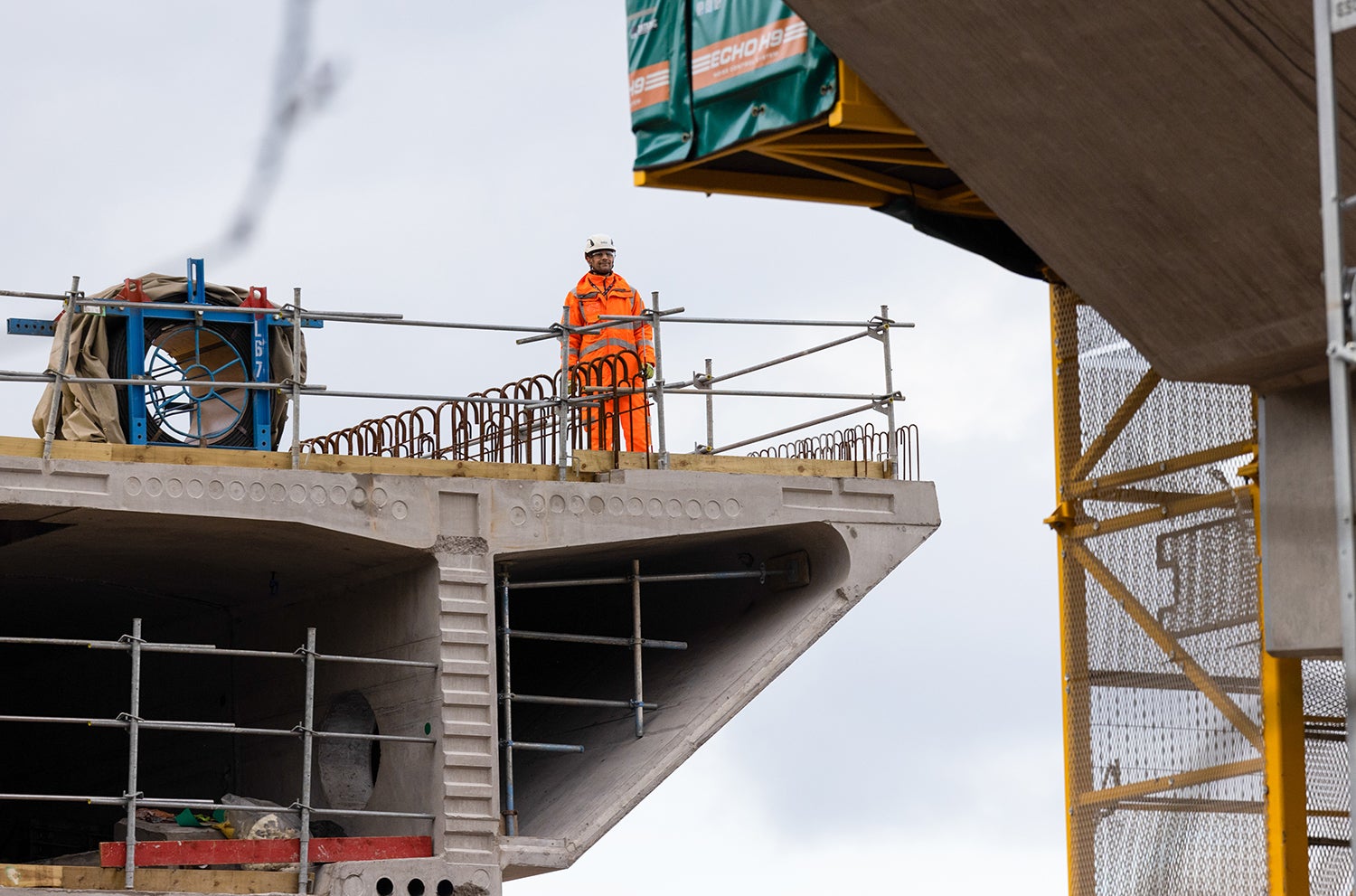The UK Government has been criticised as “short-termist” for delaying the Birmingham to Crewe leg of the HS2 high-speed railway, with many outlining concerns the move will increase the cost while delaying the benefits.
The 60-mile section will be delayed by two years, according to UK Transport Secretary Mark Harper. The move, according to Harper, is due to rising costs associated with the HS2 project.
“We have seen significant inflationary pressure and increased project costs,” the Transport Secretary said in a written statement to parliament yesterday. “We will rephase construction by 2 years.”
The HS2 project has been facing mounting costs and delays for some time. In 2019, the estimated cost has £71bn – a 215% increase from the £33bn cost stated in 2010.
The section of rail linking HS2 to Euston station in central London will also now be a lower priority, with work focusing instead on joining the line up to a newly-built but much less central hub at Old Oak Common in suburban north-west London.
Many have criticised this decision, as it means HS2 passengers will initially have to make a connecting journey at an interchange on the outskirts of London rather than arriving at the central terminus of London Euston.
The “stop-start approach” is wasting money
The original HS2 route has been cut back several times since the project began, with the scrapping of both the Eastern Leg from Leeds to Birmingham, and cancelling the Golborne Link, which would have enabled high-speed trains to get from the Northern Leg of HS2 to Scotland.
“It is clearly disappointing to hear of this delay, which seems to prioritise short-termism over a structured, long-term strategy for what is Europe’s biggest infrastructure project,” says Railway Industry Association CEO Darren Caplan.
“The delay postpones the immense benefits the project is set to deliver for the country, including extra capacity, more economic growth, improved connectivity – driving levelling up – and hundreds of thousands of jobs, specifically in the Midlands and the North.
“This stop-start approach to a project is an inefficient use of taxpayers’ money, and could ultimately drive the project’s costs up, which is the opposite of what the Government is trying to do.”
No clear timeline for HS2 in the North
In his statement, Harper did not confirm a completion date for the northern section of the project linking Birmingham to Manchester.
“This is a disappointing announcement,” Lord McLoughlin, Chair of Transport for the North, says in response to the news of the cost-cutting.
“It needs to be understood whether or not these cost savings can be realised while still achieving the same desired outcome and conditional outputs. The government needs to avoid being penny-wise and pound-foolish, as delays don’t necessarily lead to savings, and in fact, can drive costs upwards.
“It is the communities and businesses across the North of England that are suffering most by any delay or inaction in delivering on these schemes.”
Despite a large campaign, including Manchester Mayor Andy Burnham, the UK Government last year dismissed proposals for Manchester Picadilly to be revamped as an underground through-running station.
The proposed rebuild would have eased capacity in the region. Last June, Withington MP Jeff Smith said that the added economic value of the build could recoup the £5bn cost in around 15 years.
HS2 delays will reduce investor confidence
The new delays have been met with concerns from industry and investors.
“Public infrastructure projects like HS2 are critical for economic growth, and meeting levelling up and net zero goals,” Jonathan Spruce, Institution of Civil Engineers Trustee for policy and external affairs says in response to the new delays. “They are an investment in our future, not a cost.”
Spruce calls for a strategic plan for the British transport system and the need for a national transport strategy, with a “clear investment plan”.
Similarly, John Foster, Confederation of British Industry programme director, said that the project has faced “significant revisions and years of uncertainty”, adding that while the statement from Harper gives businesses some clarity needed to enable them to plan effectively, news of delays will “reduce investor and contractor confidence in the rail sector”.
“To mitigate any further loss of confidence, it is critical that government tackles the inflationary pressures that are biting hard across the infrastructure sector,” says Foster.
“Delays to projects may create short-term savings, but they can ultimately lead to higher overall costs and slow down the UK’s transition to a better, faster and greener transport network”.
Rail capacity: HS2 must “maintain momentum”
“It is essential to maintain momentum on delivery [of HS2] and avoid stop-start investment, which reduces business certainty, adds cost to projects and brings economic costs in terms of reduced efficiency of the network” comments Kate Jennings, director of policy at Logistics UK.
With rail traditionally a ‘greener’ choice compared to other transport modes – each freight train can equate to 77 Heavy Goods Vehicles – Jennings says that maximising the capacity for a modal shift to rail is vital for meeting decarbonisation targets.
Jennings also reiterates the importance of the project for the country’s rail network capacity and how the delays will impact the supply chain.
“The conventional rail network is at capacity. HS2 is the greatest opportunity for delivering a substantial increase in capacity for rail freight in the UK,” she said.
“Once operational, HS2 has the potential to release capacity on the existing network for up to 144 extra freight trains per day.”


